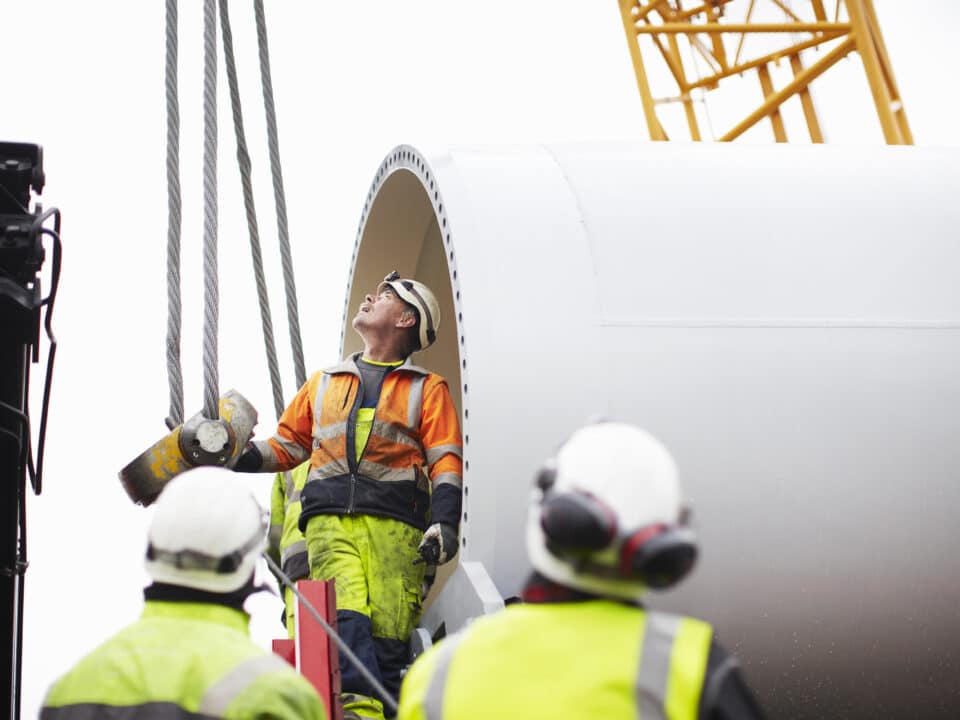
Floating Wind Turbines: Transforming Offshore Wind Energy
October 15, 2024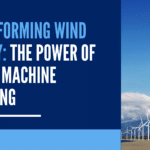
The Role of AI and Machine Learning in Revolutionizing Wind Energy
December 11, 2024In the rapidly evolving wind energy sector, comprehensive training is essential for ensuring safety and efficiency. At Wind Trade, we offer a variety of training programs designed to equip you with the skills and knowledge necessary to excel. From foundational safety courses to advanced rescue operations, our training programs are tailored to meet industry standards and prepare you for real-world challenges.
Basic Safety Training (BST)
Basic Safety Training (BST) is the cornerstone of wind energy safety education. This course covers essential safety protocols that every wind turbine technician must know. The BST program includes modules on First Aid, Manual Handling, Fire Awareness, and Working at Heights. Each module is designed to provide you with the knowledge and skills to handle common hazards in wind turbine operations.
Why Basic Safety Training is Important
- Safety First: Ensures foundational safety knowledge and skills.
- Industry Recognition: GWO-certified, recognized globally by industry leaders.
- Hands-On Training: Practical exercises to reinforce theoretical knowledge.
Completing the BST course prepares you for the demanding environment of wind energy, making it a crucial step for anyone entering the industry.
For more detailed guidelines on entry-level wind technician training, visit Clean Power.
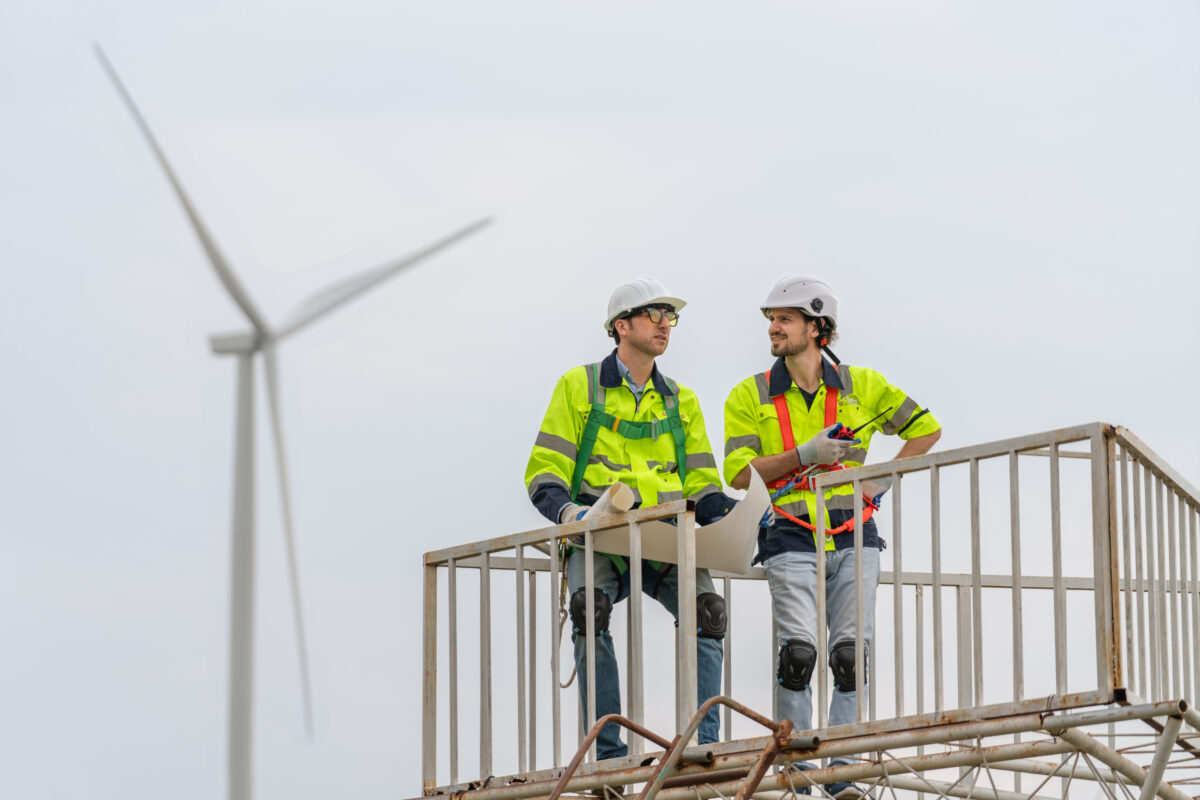
Advanced Rescue Training (ART)
Advanced Rescue Training (ART) goes beyond the basics to prepare technicians for complex and high-risk rescue scenarios. This course is essential for those who need to master intricate rescue operations in turbine environments. The ART program includes modules on Hub Rescue, Nacelle Rescue, and Tower Rescue. These modules teach you the tactics and techniques required for high-angle rescues and medical response, ensuring you are ready for any emergency.

Key Features of ART
- Comprehensive Curriculum: Covers all aspects of advanced rescue operations.
- Expert-Led Instruction: Learn from industry professionals with real-world experience.
- GWO Standards: Meets strict GWO standards for safety and efficiency.
By completing the ART course, you can elevate your safety skills and go beyond basic mandates, ensuring you are well-prepared for any rescue scenario in the wind energy sector.
Basic Technical Training (BTT)
Basic Technical Training (BTT) provides an in-depth understanding of the mechanical, electrical, and hydraulic systems used in wind turbines. This course is ideal for technicians who need to perform maintenance and repair tasks. The BTT program covers Mechanical, Electrical, and Hydraulic components, offering a comprehensive education in wind turbine technology.
Benefits of Basic Technical Training
- Technical Proficiency: Gain detailed knowledge of turbine systems.
- Practical Application: Hands-on training to apply what you’ve learned.
- Career Advancement: Enhances your skills, making you a valuable asset in the industry.
The BTT course ensures you have the technical expertise needed to maintain and repair wind turbines, contributing to the overall efficiency and safety of wind farm operations.
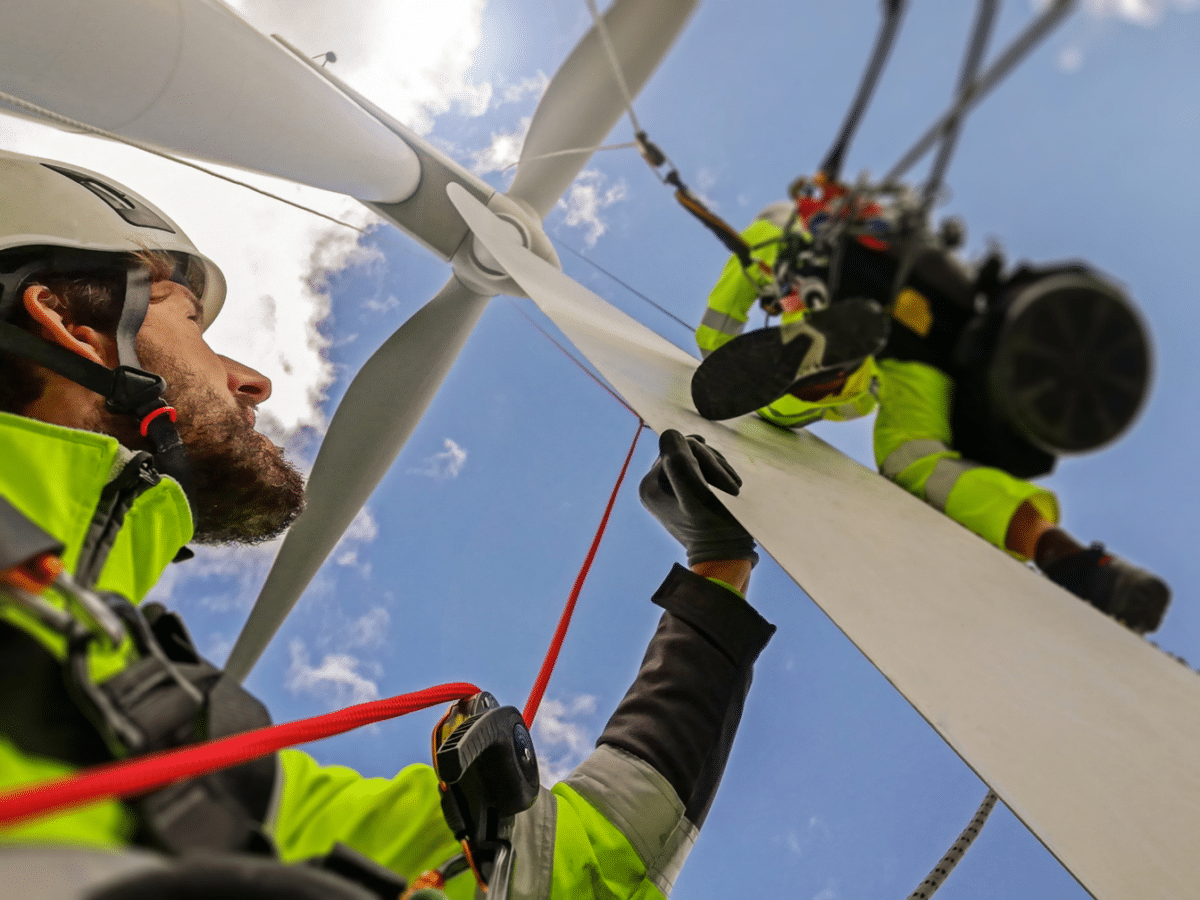
Blade Repair Training
Blade Repair Training is a specialized course focused on the maintenance and repair of wind turbine blades. This training is crucial for ensuring the efficiency and longevity of turbines. The Blade Repair program includes modules on Blade Inspection, Repair Techniques, and Safety Procedures.
Why Blade Repair Training Matters
- Specialized Skills: Learn techniques specific to blade maintenance.
- Safety Assurance: Ensures safe repair practices to prevent accidents.
- Efficiency Boost: Keeps turbines operating at optimal performance.
By mastering blade repair techniques, you can significantly contribute to the operational efficiency and safety of wind turbines.
Control of Hazardous Energies Training
Control of Hazardous Energies Training is designed to teach technicians how to manage and control hazardous energy sources during maintenance activities. This course is vital for preventing accidental energy release, which can lead to severe injuries or fatalities. The program includes Lockout/Tagout procedures and Energy Isolation Techniques.
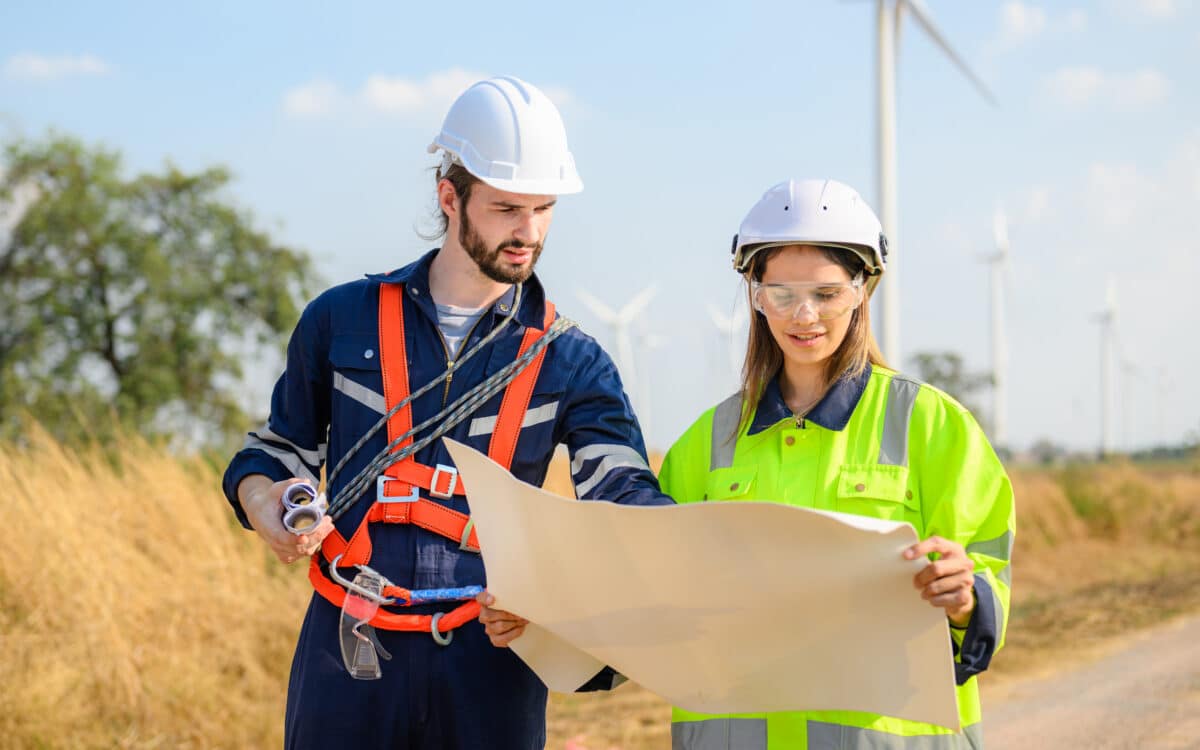
Importance of Hazardous Energies Training
- Safety Enhancement: Prevents accidents related to hazardous energy release.
- Compliance: Ensures adherence to industry safety regulations.
- Practical Training: Hands-on exercises to reinforce safety procedures.
Completing this training equips you with the knowledge and skills to safely manage hazardous energies, making it an essential part of wind turbine maintenance.
Crane and Hoist Training
Crane and Hoist Training focuses on the safe operation and maintenance of cranes and hoists used in wind energy operations. This course is essential for technicians involved in handling heavy equipment. The program covers Operating Techniques, Safety Protocols, and Maintenance Procedures.
Benefits of Crane and Hoist Training
- Operational Safety: Ensures safe handling of cranes and hoists.
- Technical Skills: Provides practical knowledge for efficient operations.
- Industry Standards: Meets industry safety and operational standards.

By completing this training, you can ensure the safe and efficient operation of cranes and hoists, contributing to the overall safety and productivity of wind farm operations.
Slinger Signaler Training
Slinger Signaler Training is designed for personnel involved in directing crane movements. This course is crucial for enhancing communication and safety during crane operations. The program includes Signaling Techniques, Load Handling, and Safety Practices.
Why Slinger Signaler Training is Essential
- Improved Communication: Enhances coordination between crane operators and signalers.
- Safety Focus: Reduces the risk of accidents during crane operations.
- Practical Skills: Provides hands-on training for effective signaling.
Completing this training ensures you can effectively manage crane operations, improving safety and efficiency on the job site.
Key Takeaways
The training programs offered by Wind Trade are comprehensive and designed to meet the high standards of the wind energy industry. From basic safety protocols to advanced technical skills, these courses equip you with the knowledge and expertise needed to excel in your career. By enrolling in these programs, you can enhance your safety skills, technical proficiency, and overall career prospects in the rapidly growing wind energy sector.




